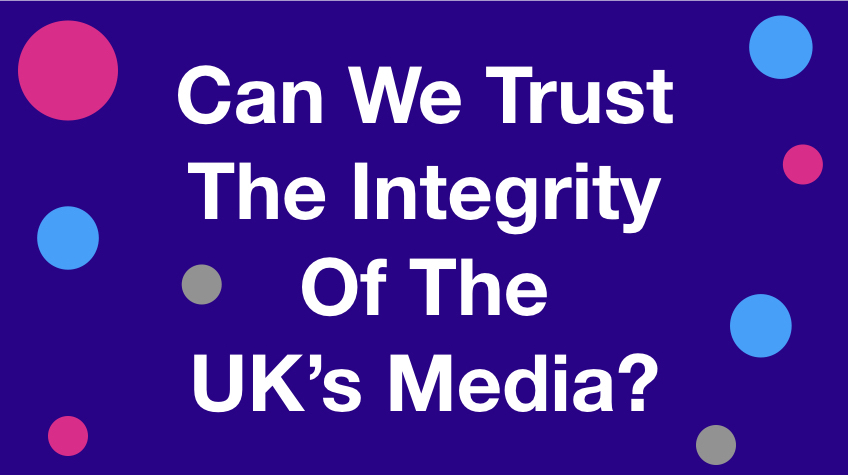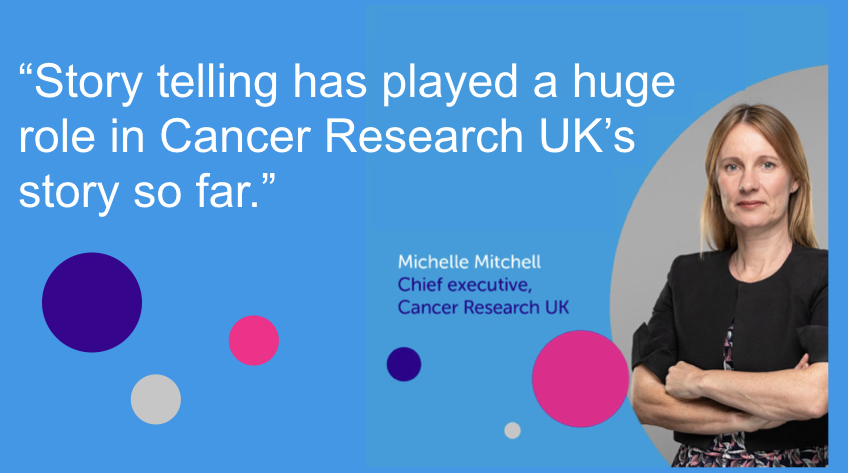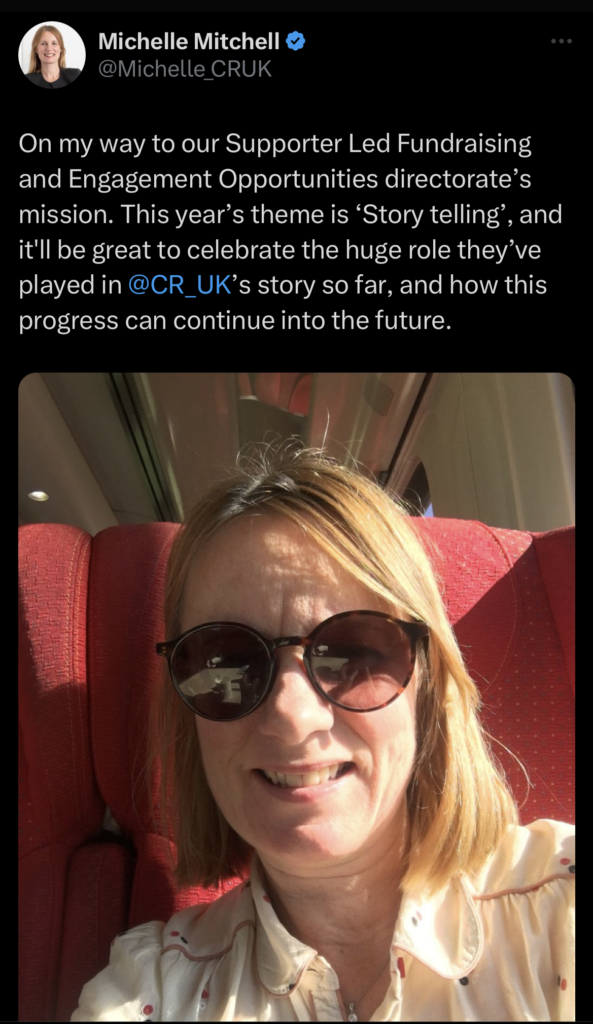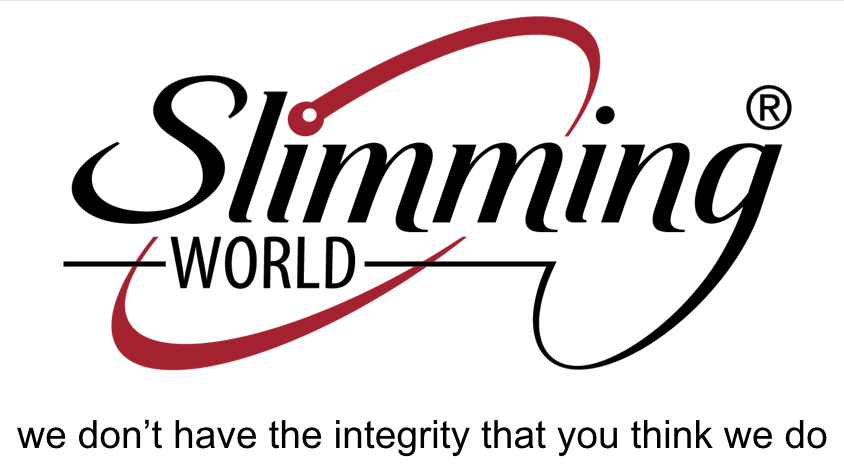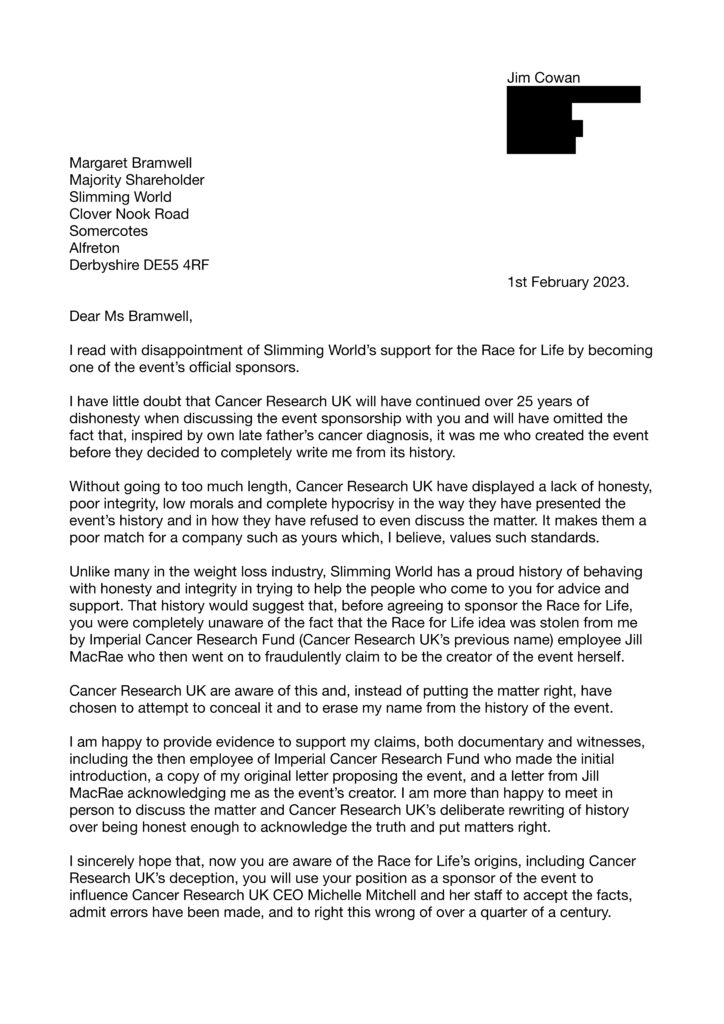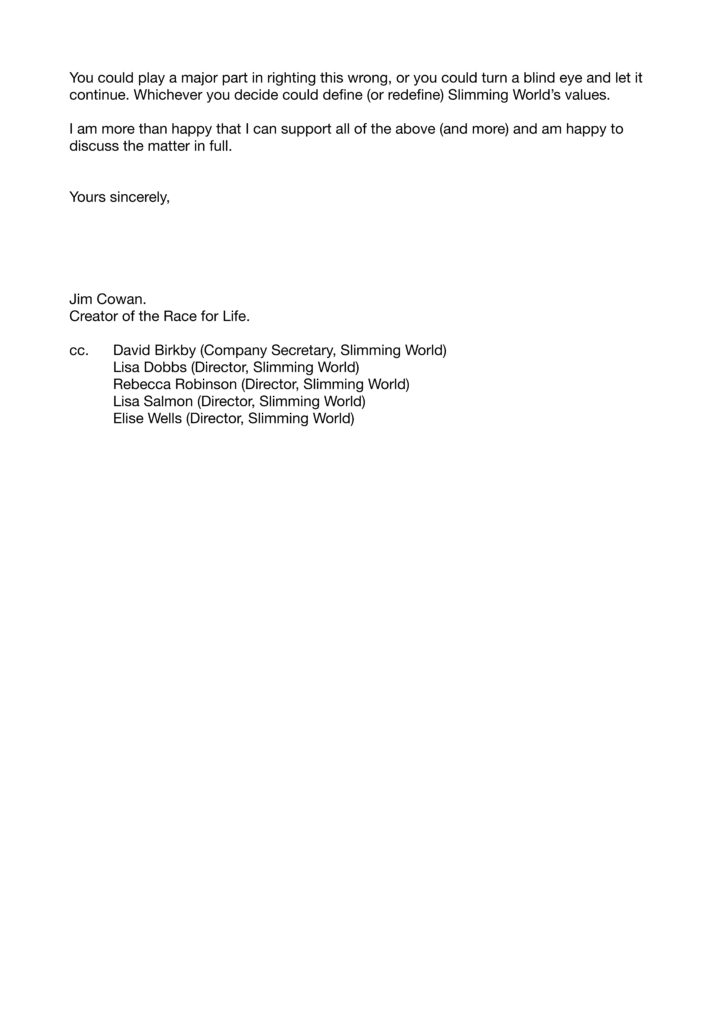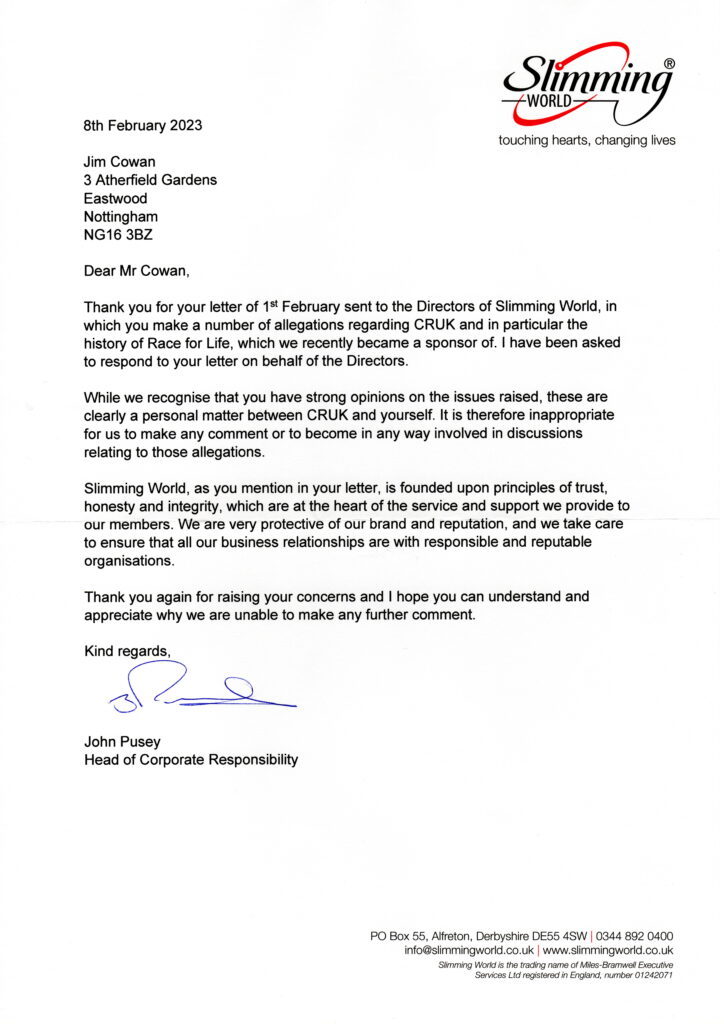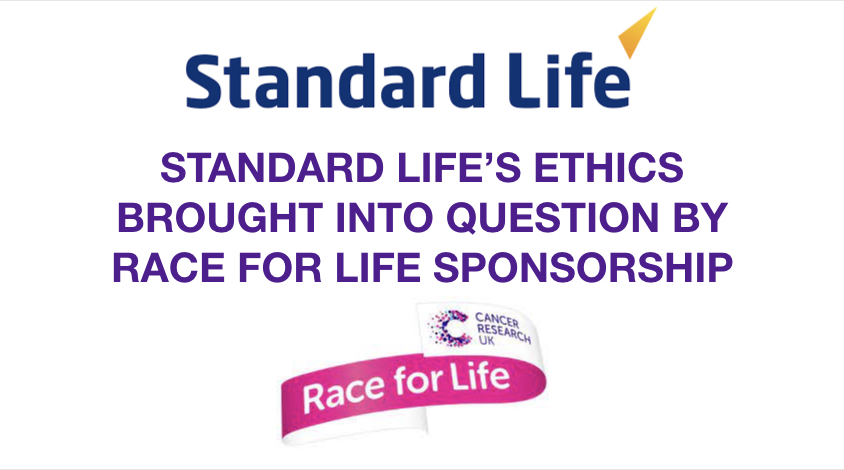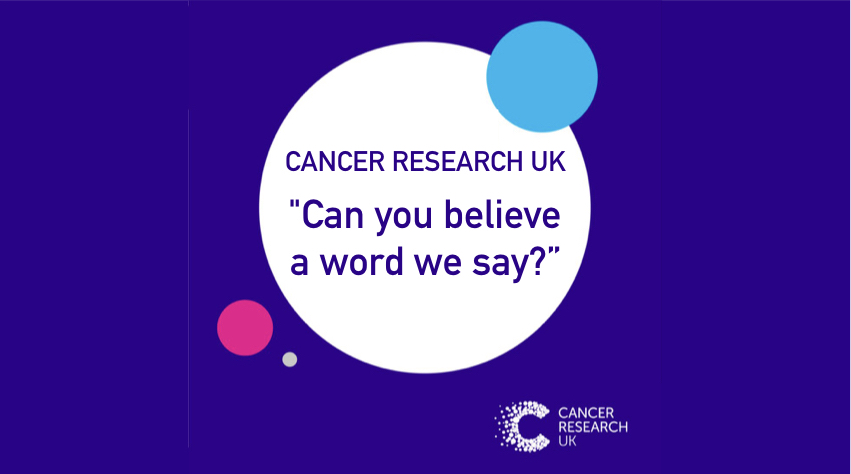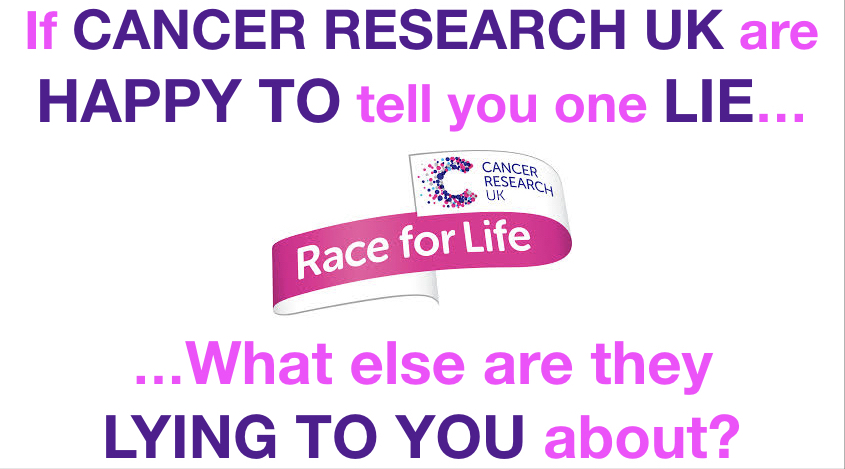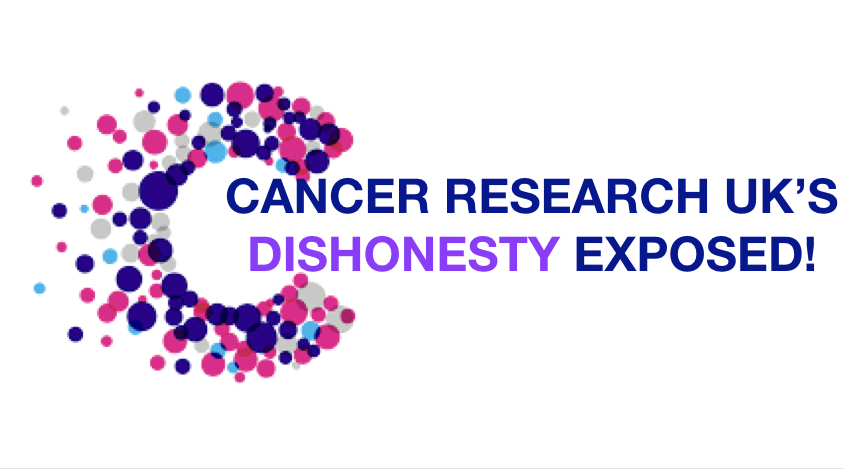
On page 62 of Cancer Research UK’s most recent Annual Report is their ‘fundraising promise’. One part of that ‘promise’ is, “to be transparent about where your money goes.”
Except, they aren’t. Worse, they know they aren’t. Which means, they know they had no intention of keeping that promise when they made it. And there is a word for that, it is called a lie.
As an example, on Cancer Research UK’s own website, there is no reference as to where the entry fee for the Race for Life goes. We know already that it does not go to research but CRUK won’t tell you that.
On the Race for Life’s ‘About Our Events’ page, at the bottom there is a link to ‘Where Your Money Goes.’ Only, the page does not tell you where your money goes. It tells you what various amounts of money can buy or support but not where your entry fee goes.
Is that being ‘transparent about where your money goes?’
Rather than be honest and state what percentage of your entry fee funds any research (i.e. be transparent about it), they choose not to mention it at all.
Rather than be honest and state what percentage of any money you spend on merchandise funds any research (i.e. be transparent about it), they choose not to mention it at all.
And, rather than be honest and tell you what percentage of money raised through sponsorship funds any research (i.e. be transparent about it), they choose not to mention it at all.
Is that being ‘transparent about where your money goes?’
The truth is that not a penny from your entry fee funds any research, not a penny from merchandise sales funds any research and, despite being pushed, they won’t say what percentage of money raised through sponsorship funds research.
And what of their Race for Life television commercial? Is that ‘transparent about where your money goes?’
Of course not.
There is no mention of where it goes, only the lie by omission and the oft used (but deliberately misleading) claim; ‘sign up today for your local Race for Life event and together we will beat cancer.’
It is a topic we have visited, and revisited, over the years and yet Cancer Research UK show no signs of being honest about where this money does (or, more accurately, does not) go. To use their own term, they show no signs of being ‘transparent’ about where your money goes, despite brazenly promising to do so in their Annual Report.
The only possible conclusion to be drawn is that they are being deliberately dishonest, promising to do something with absolutely no intention of doing it. That fundraising promise is nothing other than a broken promise, a promise the knew they would break as they were making it.
It is just another Cancer Research UK lie in a long history of lies, deceptions, hypocrisy, fraud, and generally poor ethics. And, of course, of broken promises.
See also:
Race For Life Tweet Confirms That None Of The Entry Fee Goes To Funding Research Into Cancer
Race For Life’s Triple Deception Misleading Supporters
In the Race 4 Truth, Cancer Research UK are lagging behind.


